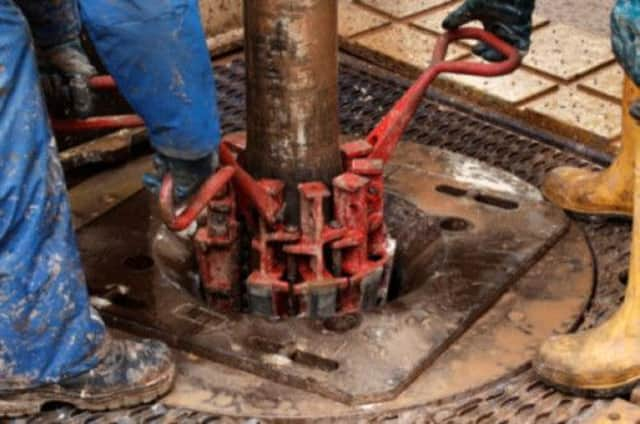Now is the time to ask fracking question


The future challenges will be debated by government, industry, planning, academic and legal experts in a Scotsman-hosted conference, “The Fracking Question”, next month.
The initial findings of a survey commissioned by Pinsent Masons seeking the views of key industry stakeholders on the future of a UK shale gas industry has thrown up some interesting points.
Advertisement
Hide AdAdvertisement
Hide AdThose who took part thought the Conservative Party should be credited with devising clear policies to promote exploration and production of shale gas, while a number of respondents thought Labour has “not been vocal on the subject of shale”. No opinions were expressed about the stance of any of the nationalist parties but it is fair to say the SNP has been relatively quiet on this subject in comparison with the positive encouragement given by others.
Local community opposition
Perhaps not surprisingly, local community opposition is expected to prove the biggest challenge to shale gas being established as a viable domestic resource. While community benefits might provide a financial incentive to people living near fracking sites, it will be critical to a successful shale gas industry to engage with residents and encourage concerns to be addressed at the early stages of development.
Only a small number thought a shale gas industry could be established in the UK within five years, with most believing it will take up to ten years and some even as long as 20.
There is some concern that the UK government approach to shale gas has been contradictory – on the one hand, generous tax breaks and a commitment to streamline the licensing regime, but on the other a lengthy planning application process which has to be negotiated by would-be operators.
Development
It would be unusual for shale gas development to be treated any differently from any other form of development and avoid the planning process but it will be essential to encourage investment in this sector that the planning process is not made any more complicated or difficult for shale gas development.
The UK government sees shale gas as the answer to a number of the country’s energy, employment and economic issues, but the tangled web of consents that a project requires is complex, and we believe more guidance is needed if meaningful development is to take place in the medium term.
The majority of those surveyed supported proposals for a single planning and licensing regime which would be responsible for planning, environment and health and safety permits.
Despite the contradictory messages, our survey highlights a confidence that the coalition’s policy on shale gas is coherent enough to foster investment.
Advertisement
Hide AdAdvertisement
Hide AdIntroducing an over-arching regime covering planning, environment and health and safety would certainly improve the appeal to investors and help propel shale gas into the next stage of its development but there would be challenges in achieving a single regime across the UK, with many elements of the current patchwork of consenting processes being devolved matters.
Framework
If shale gas is to become a significant element of our energy mix, it is imperative that both national and devolved governments set out a clear framework into which development proposals can be brought forward, so that companies can factor that into their decision-making on whether or not to invest in the future of shale gas in the UK.
Sir Ian Wood has just released his interim findings into the future of the UK oil and gas industry. His recommendation of stronger independent regulation should be heeded in the context of the nascent shale industry.
With clearly defined policy at national and local levels and more efficient and co-ordinated planning and licensing regimes across the UK, industry can focus on community engagement and the infrastructure and technology needed to determine whether or not shale gas features highly in the UK’s future energy supply.
• Jennifer Ballantyne is a partner at Pinsent Masons (www.pinsentmasons.com) and she will speak at Scotsman Conferences’ event ‘The Fracking Question: Is Shale Oil and Gas a Game-Changer for Energy Security and Pricing?’ on 11 December in Edinburgh www.scotsmanconferences.com